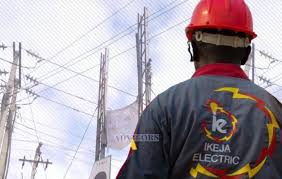14 October 2011, Sweetcrude, Abuja- The pioneer Director-General and Chief Executive Officer of the National Power Training Institute of Nigeria (NAPTIN), Engr. Reuben Okeke has stated that after many years of trial and error in the nation’s power sector that the newest route taken by government to privatise power assets remains the best strategy towards reviving the sector and making power work for Nigerians.
Engr. Okeke, who stated this in an interview with our correspondent in Abuja, also noted that the advent of privatization will bring about healthy competition, which will yield quality and reliable electricity services for consumers across the country.
He said, “Privatisation is one of the best things that has happened to the sector, because it is going to keep the workers in the power sector on their toes; it is going to bring competition. I have spent about 32 years in the system, I can say that we have tried everything, what we have not tried is privatization, it is going to move it forward.”
He further stressed that privatization would have a positive impact on the NAPTIN, which is the primary organization established for the training of power technicians and technologists for the industry.
According to Okeke, “Privatization is going to make NAPTIN to be on a bigger circle, because private organizations know that training is key. So they are going to ensure that they train their staff because that is the only thing that can move them forward, and where else can they get, they can only get from an institute set up and equip by government for the very purpose.
“Remember that the organ responsible to bring up those that will ensure physical infrastructure is NAPTIN there are no two of such institutions now in Nigeria. There is certainly going to be competition among the distribution companies, and they can only rely on a workforce you have trained.
“They can procure training outside, nobody is stopping them. But instead of spending about 20, 000 Euro to train a staff overseas, and you know that you can get that same training here in NAPTIN, it is better to get it here. So after privatization, NAPTIN is going to be of a very strong footing and there is going to be a very big market.”
He explained that presently, NAPTIN under the supervision of the ministry of power has gotten the first draft of the National Power Training Policy, which the Electricity Reform Act of 2005 provided for, and which prescribes essential training for all participants in the power sector.
“The first draft will be in the public domain any moment from now, and we will have a public forum for all stakeholders in the power sector to come and debate it. Once it is passed into law it becomes a law, and if you violate it, your license might be withdrawn. One of the key things it stresses is that all employers must ensure that 10 days out of 365 days in a year must be spent in training and re-training their workers,” he added.
He explained that NAPTIN was created in March 2003 and it has its mandate, vision and mission, adding that the most important thing is to actualise the mandate which government has given us.
“We are to ensure that every body, both technical and non-technical, working in the power sector, that their skill and knowledge is upgraded to meet modern technology so that when government achieves 25,000MW in the year 2020, we can have enough capable hands to sustain it.
“We have ensured that we have a very good environment for learning and to create some intervention courses because for the last 20-25 years there have not been any structured training, until 2009 when NAPTIN was created. As at the time NAPTIN was created we had very well neglected seven regional training centers,” Engr. Okeke stated.
The NAPTIN boss pointed out that already the Institute was looking beyond training power technicians in Nigeria, and was looking to provide such servies to other countries in the sub-region.
He said, “In fact, we already have a scheduled meeting with West Africa Power Company. We want to engage people outside Nigeria to come and procure training here. We are getting equipment which is costing us about 435,000 Pounds at Ijora training school, so that people can be forced to come to us, and it will enable us to survive and train more Nigerians who will come to us in future.”




